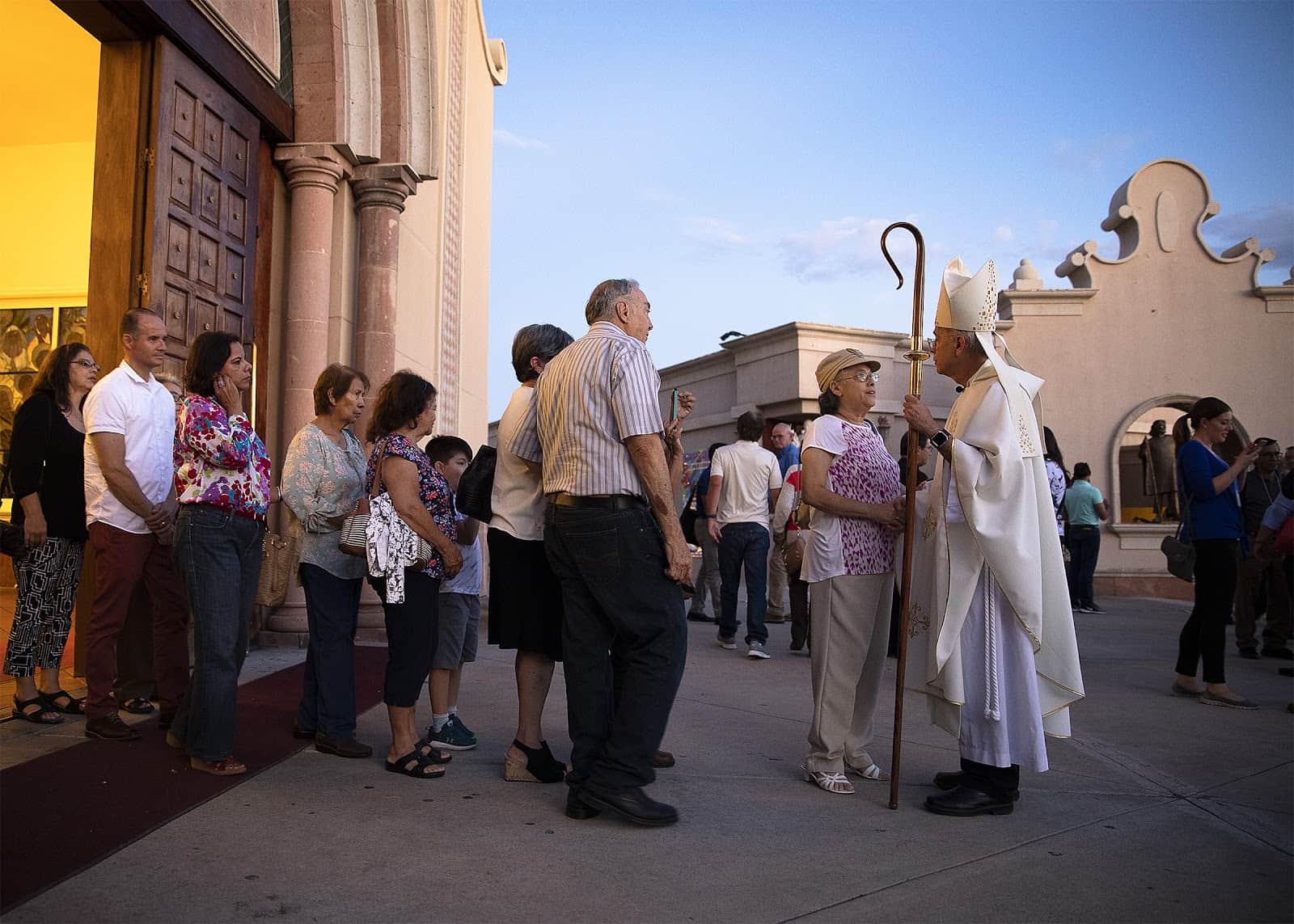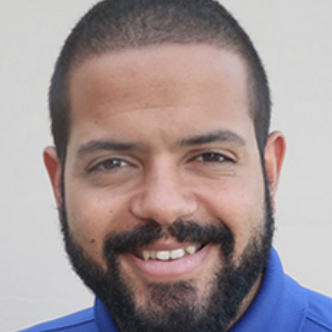(Haga clic aqui para español.)
On October 13, two months after the deadly shooting at a Walmart in the city of El Paso, bishop Mark Joseph Seitz published a pastoral letter about racism from the standpoint of the people in the borderlands: Night Will Be No More, A Pastoral Letter to the People of God in El Paso. Seitz, who complements with his thoughts the reflections made last year by the US Bishops on Open Wide Our Hearts, gives us a document that explicitly admits what racism is, addresses its long history, and illustrates how a commitment to healing it looks like. His honesty reminds me of the words of the Jesuit martyr, Ignacio Martín Baró: “There are truths that can only be discovered through suffering or from the critical vantagepoint of extreme situations.” 1 Here are 5 points from Bishop Seitz’ letter, useful for all those who labor for racial healing.
1) White Supremacy is the Problem
Racism is not just a set of individual beliefs of racial superiority. It is a set of policies that unfairly favor a racial group at the expense of another. In the specific context of the US, whites have been the main beneficiaries of institutionalized discriminatory laws, policies, and behaviors to this day. Attacks like the shooting in El Paso have been explicitly in defense of this white supremacist system. As Seitz points out “If we are honest, racism is really about advancing, shoring up, and failing to oppose a system of white privilege… Action to build this system of hate and inaction to oppose its dismantling are what we rightly call white supremacy” (Night Will Be No More #14). In the shooting at El Paso, “Latino blood was spilled in sacrifice to the false god of white supremacy” (Night #1).
2) Healing Requires Admitting a History and a Present of Exclusion
Contextualizing present day discriminatory policies in a long history of racial abuse gives perspective to current debates. Speaking from the Lone Star state, the bishop dedicates part II of his letter to summarize the history of racism on the border. From the time of the Spanish colonists exploiting Natives, to the fight for independence partially to ensure the survival of slavery in the state; from the Texas Rangers assassinating thousands of Mexicans to the Chinese Exclusion Act deporting Chinese immigrants after the railroad was completed; with the expulsion of the braceros in the 1960s, today’s shootings, and many other examples, the consistent message to the racial minorities through these policies has been “Tú no vales” (“You don’t count”) (Night #21).
Against all this history of racism, minorities have fought bravely but not without suffering from forced poverty and other “deadly effects.” Seitz explicitly denounces that these are not suffered “because anyone is inherently inferior, criminal or lazy. But because on these criminal pretexts people on the border have had less opportunity. This is institutional racism” (Night #39).
3) The Wall is Another Act of Racism and Xenophobia
For Bishop Seitz, the wall dividing the border between the US and Mexico is “a powerful symbol in the story of race” that “has helped to merge nationalistic vanities with racial projects” (Night #34). The wall, which started with NAFTA before 2016, ensures that wealth crosses the border but criminalizes “human mobility.” It damages the environment and kills families. It aggravates racist perceptions toward Mexicans and other immigrants. It affects how we see the South of the border as dangerous, and how we see ourselves in the US as “passive observers in the growth of narco-violence and the trafficking of human beings and drugs.” “There will be a day,” declares the prelate, “when after this wall has come crumbling down we will look back and remember the wall as a monument to hate” (Night #35).
4) Our Vocation is to be Anti-Racists
The solution to racism, is not to be non-racist. As the bishop already explained, not to act is also racist. Racism is “the anti-reign,” and the church is supposed to continue Jesus’s mission to restore “‘the unity of the whole human race.’” Baptism and the Eucharist are special means for this end (Night #54). Therefore, the church must “die to an attitude of fear and rise with a will to encounter others in vulnerability” (Night #57). It is not an option to proceed with “non-engagement.” “We must also make a commitment to be anti-racists in active solidarity with the suffering and excluded” (Night #59).
5) Our Objective is to Build the “City of God”
Racism has no place in the kingdom of God. If racism manifests itself in policies that unfairly favor one racial group over another, it’s dismantling requires policies that repair the damage done to minorities. Reminding the readers that “God gave the earth to the whole human race for the sustenance of all its members,” he declares that all of us must work to ensure without exclusion access to quality education, universal healthcare, the protection of human life, better wages, rejection to gun violence, among other things (Night #61).
To promote the end of racism, is to labor for a better society. It is a “work” that is “holy,” “for it contributes to the universal building of the city of God, which is the goal of the history of the human family.”
*****
God “hears the cry of the poor” says the psalm. God also is the one screaming through the poor against injustice and racism. Those who pay attention with an honest heart can hear him. Honesty, after all, is the first step for healing. Racism can’t be treated as a secondary problem. It must be a priority in the Catholic Church. As we continue to meditate on bishop’s Seitz letter, let us join all the people of El Paso in praying for the 22 victims of the shooting, and for their relatives. Let us also pray that the terrorist is not killed with capital punishment. His blood will create more hate. May God grant conversion to our politicians and to all the beneficiaries of white supremacy who still resist to hear the cry of the poor. The time to be anti-racists is now.
- Hearts on Fire: Praying with Jesuits. Edited by Michael Harter. Saint Louis: Institute for Jesuit Sources, 1993, 65. ↩


